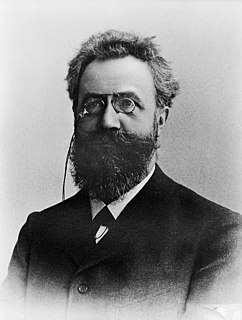A Quote by W. H. Auden
Young people, who are still uncertain of their identity, often try on a succession of masks in the hope of finding the one which suits them - the one, in fact, which is not a mask.
Related Quotes
It was a dance of masks and every mask was perfect because every mask was a real face and every face was a real mask so there was no mask and there was no face for there was but one dance in which there was but one mask but one true face which was the same and which was a thing without a name which changed and changed into itself over and over.
I have this very kind of like heterodox idea of what an education is, what underpins identity. I don't think I'm very easily pigeon holed in any of those boxes, so I confront this. I have a staff full of young people who came up in a very different tradition and who feel very fired up about the big identity battles. I listen and I try to navigate them, but I don't find them mapping onto my life in a personal way which is, which is hard.
I've always used masks. I think it's a lot about the fact that masks often reveal a sort of subconscious element to a character. The mask is carved and given an expression or markings to reveal something, even though it's shielding the face. Even though it's hiding the face, it seems to reveal something underneath.
. . . Cultivating good humor may be helpful in finding our own identity. Young people who are trying to find out who they really are often have concerns as to their ability to meet and cope with the challenges that confront them and that lie ahead. They will find that it is easier to ride over the bumps and come quickly to their own identity if they cultivate the good humor that comes naturally. It is important that we all learn to laugh at ourselves.
People think that they have no right to judge a fact - all they have to do is to accept it. Thus from the moment that technics, the State, or production, are facts, we must worship them as facts, and we must try to adapt ourselves to them. This is the very heart of modern religion, the religion of the established fact, the religion on which depend the lesser religions of the dollar, race, or the proletariat, which are only expressions of the great modern divinity, the Moloch of fact.
Sometimes we mask ourselves to further reveal ourselves, and it's always been connected to me with being a writer: We tell lies to tell a greater truth. The story is a mask; the characters you create are masks. That appeals to me. Aside from that, too, in the carnival the masks were beautiful, and offered a vision of Haitian creativity.
It is this language of values which I hope to bring to my books. . . . I want to bring values to those who have not been valued, and I want to etch those values in terms of the ideal. Young people need ideals which identify them, and their lives, as central . . . guideposts which tell them what they can be, should be, and indeed are.
Did you know that the word person comes from the Latin word persona, which means mask? So maybe being human means we invite spectators to ponder what lies behind. Each of us will be composed of a variety of masks, and if we can see behind the mask, we would get a burst of clarity. And if that flame was bright enough, that's when we fall in love.
When young men or women are beginning life, the most important period, it is often said, is that in which their habits are formed. That is a very important period. But the period in which the ideals of the young are formed and adopted is more important still. For the ideal with which you go forward to measure things determines the nature, so far as you are concerned, of everything you meet.





































